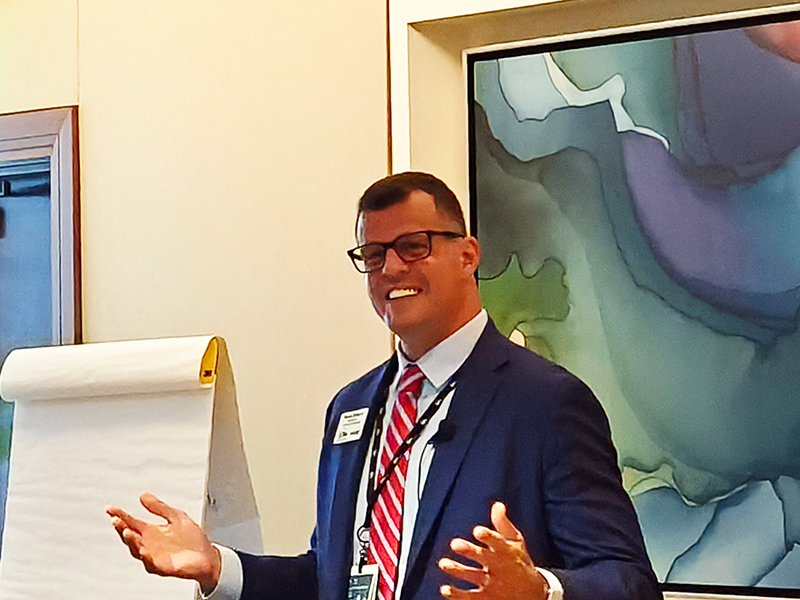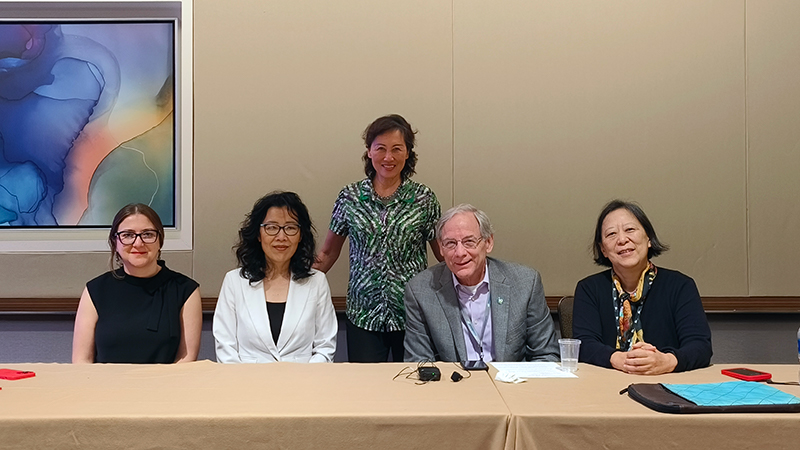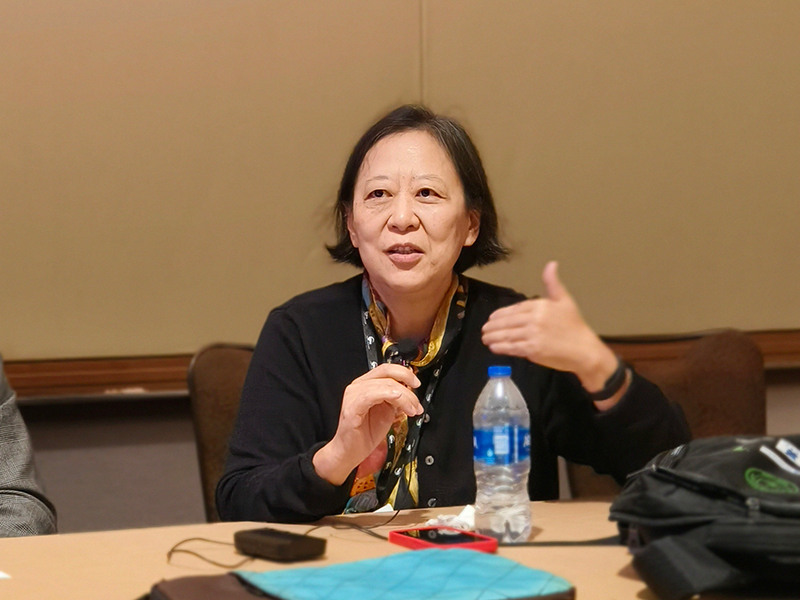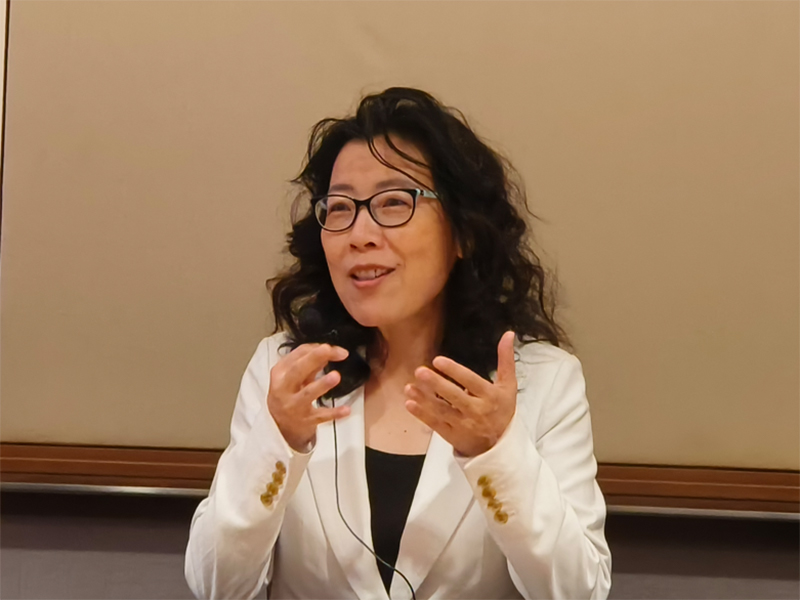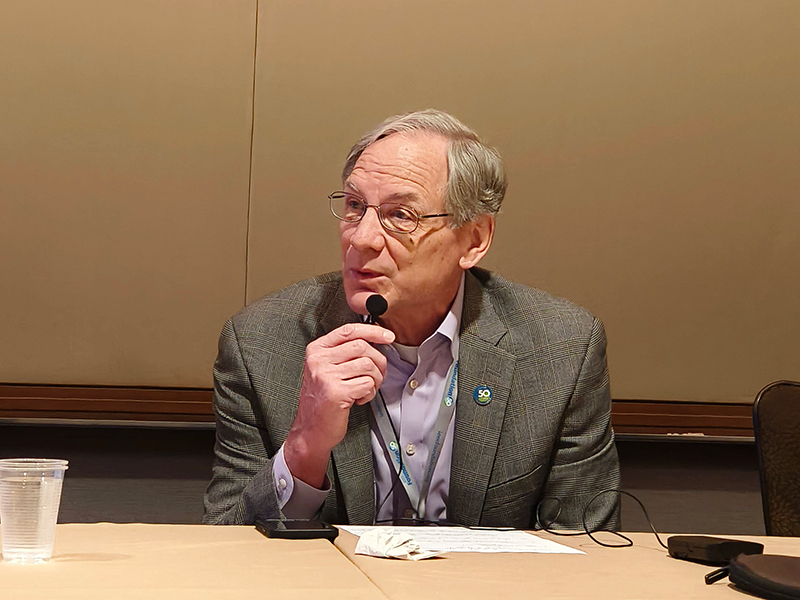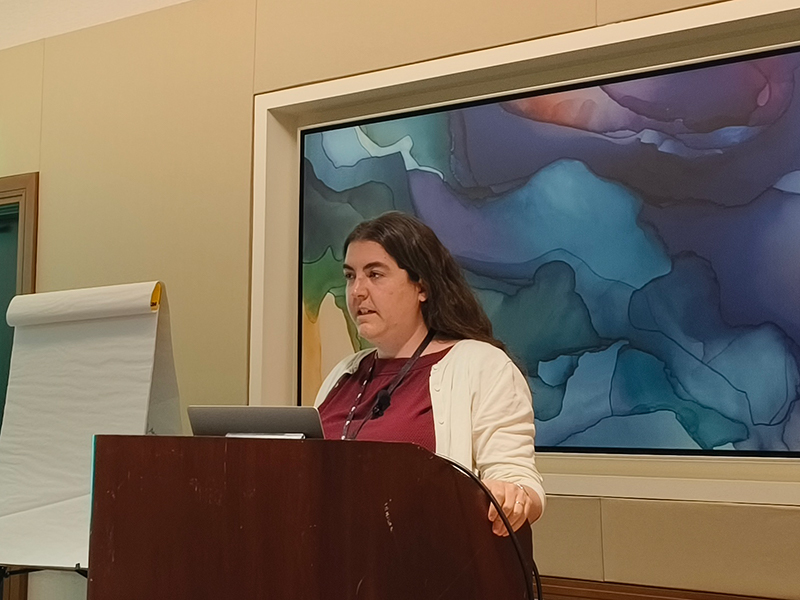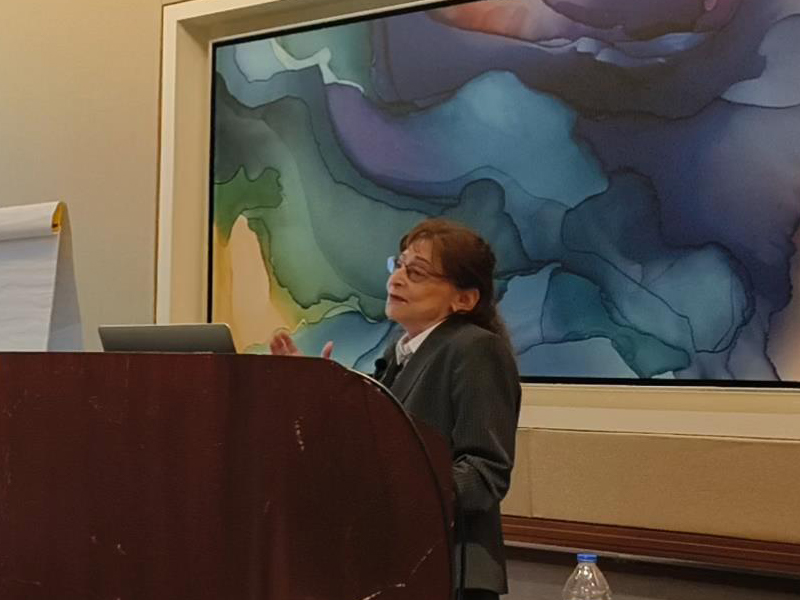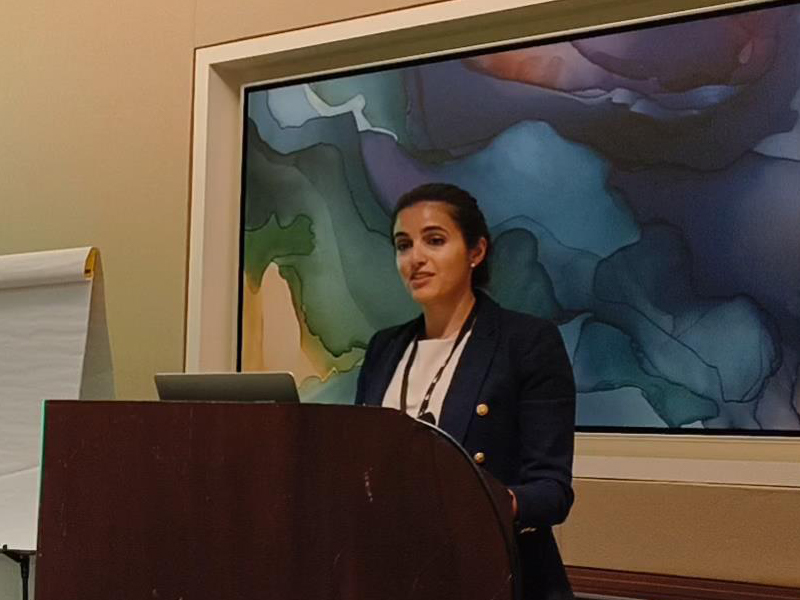The forum was attended by prominent figures including Jessica Bian, President of IEEE PES; Julio Romero Aguero, Vice President of IEEE PES; Wayne Bishop, Vice Chair of IEEE PES; Yilu Liu, Deputy Director of DOE/NSF Engineering Research Center (CURENT); John McDonald, former President of IEEE PES; Shay Bahramirad, President-Elect of IEEE PES; Johanna Mathieu, Professor at the University of Michigan; Veronika Rabl, Vice Chair of IEEE-USA Energy Policy Committee; and Dana AI-Qadi, Representative of IEEE PES WIP R5.
Dr. Ruomei Li, the conference chair and moderator, delivered the opening speech, providing a brief overview of the event and expressing gratitude for the support of PES leaders and experts. She emphasized the importance of improving energy efficiency and highlighted its role in achieving sustainability and reducing emissions. She stated, “to make renewable energy energy, storage, and electricity. But the most effective thing is reduction of energy consumption.”
Julio Romero Aguero, Vice President of IEEE PES, delivered a speech titled “Energy Transition Needs You.” He called for active involvement of IEEE PES members in driving industry development and innovation amidst the changing landscape, challenges, and opportunities in the electrical energy sector. He emphasized the significance of attracting young talents, diversity, and interdisciplinary collaboration to address industry transformations and challenges.
Julio Romero Aguero :ResumeVideoReport
Wayne Bishop, Vice Chair of IEEE PES, gave a speech titled “The Power and Energy of Women in PES Meetings.” He discussed the role and opportunities for women in various fields of professional development, emphasizing the importance of cross-domain comparisons and promoting broader participation of women in engineering, medical, and dental fields. He urged collective efforts to enhance diversity and inclusivity in these domains.
Wayne Bishop :ResumeVideoReport
The subsequent segment consisted of a panel discussion, during which the following questions were posed:
1)How important is energy efficiency to reduce emissions? Reflected in what aspects?
2)What are the paths to energy efficiency – Industrial manufacturing / A building /Traffic / Indoor air conditioning / The lighting / Design and management of energy supply and transmission systems? Which field is currently doing the best job in this area?
3)What are the current areas and technologies that need attention in improving energy efficiency?
4)What is the role of government policies and market mechanisms in improving energy efficiency?
5)The behavior of energy consumers is important for reducing energy use. What policies can incentivize businesses and households to reduce consumption without compromising quality of life?
6)What are the ways and potential to reduce consumption in the public electricity sector, including transportation, education and health? Technology and policy?
All of the 4 speakers have given excellent answers upon their experiences and special viewpoints.
Professor Yilu Liu emphasized the need to consider energy sources, costs, and the application of renewable energy in pursuit of energy efficiency. She stressed the importance of assessing energy consumption from specific angles to develop targeted measures for improvement, and highlighted the significance of both energy consumption efficiency and input cost considerations.
Jessica Bian shared insights from Boston, which ranks first in energy efficiency among all states. She attributed this success to local education policies. She also discussed the development and application of artificial intelligence technology, which enables more efficient energy utilization. She predicted that the next generation of AI professionals will focus on different issues and use technology to enhance energy efficiency.
Shay Bahramirad discussed the importance of initiating cultural change from grassroots levels. She emphasized the impact of education and shared a story of successful collaboration between female engineers and high school students to create an electric car within three months, highlighting the importance of nurturing and encouraging the next generation’s involvement.
John McDonald emphasized the relationship between energy efficiency and people’s perception. He highlighted the importance of education and explanation in inspiring others’ interests and actions, noting that people’s cognition and willingness can be changed through education and explanation processes.
The subsequent theme speeches included:
Johanna Mathieu’s speech on “The Sub-metered HVAC Implemented For Demand Response (SHIFDR) Dataset.” focused on demand response experiments and insights obtained from sub-metered HVAC (Heating, Ventilation, and Air Conditioning) data. She emphasized the challenges in accurately estimating HVAC fan power and the value of sub-metered HVAC measurements. She discussed how building automation systems (BAS) often do not capture electricity consumption accurately, and explored the need for sub-metered data to achieve closed-loop control. She highlighted the importance of conducting more experiments on real buildings to enhance understanding and improve models. She concluded by advocating for open data sharing, and accelerating the integration of buildings as grid assets.
Veronika Rabl’s speech on “Energy Efficiency, for the Customer, the Society, the Planet.” She underscored the importance and impact of energy efficiency in various sectors and emphasized how progress in energy efficiency has achieved significant accomplishments in fields such as lighting, cooling, and transportation. She encouraged continued investment and promotion of energy efficiency as a key support for energy transition, highlighting its role in improving quality of life and enhancing human experience.
Dana AI-Qadi’s speech on “Leveraging Energy Efficiency Policy to Accelerate Decarbonization Goals.” She highlighted the importance of energy efficiency policies in achieving decarbonization and sustainability goals, emphasizing their role in achieving cost-effectiveness and feasibility. She discussed energy efficiency policies at different levels, including national, state, and city levels, and their design and implementation based on community needs, social equity, and economic impact. She underscored the importance of using energy efficiency to support other decarbonization initiatives and the role of data-driven, digitally supported analysis and simulation in policy formulation and implementation.
After their speeches, there is the part of questions and answers. The speakers’ unique insight and very clear expressions have impressed the attendees.
By the end of the session, part of attendees have made joint photos for the memories.


